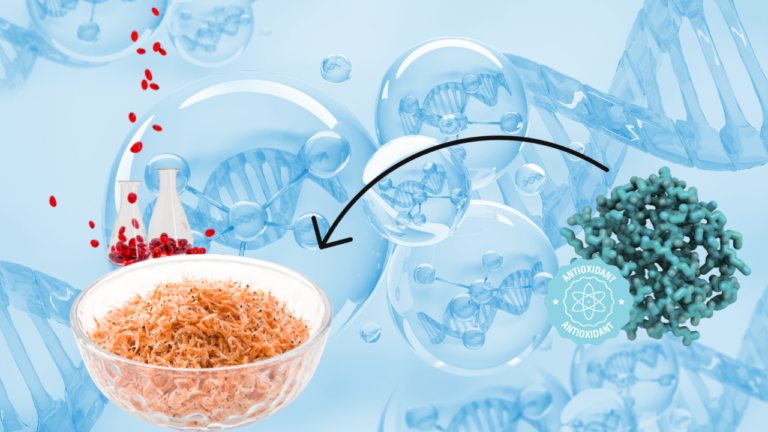Headaches are a common ailment affecting millions worldwide, often attributed to various factors such as stress, dehydration, or underlying health conditions. One such condition linked to headaches is high cholesterol levels in the blood. In today’s blog, I will explore the potential connection between high cholesterol and headaches and the role of Krill in managing cholesterol levels and potentially alleviating associated symptoms.
Can High Cholesterol Cause Headaches?
High LDL cholesterol levels, commonly known as “bad” cholesterol, can cause atherosclerosis, where fatty deposits build up on artery walls. This plaque buildup can, over time, narrow and stiffen the arteries, leading to restricted blood flow to the brain. When blood flow is reduced, it causes neurological symptoms, such as headaches.
Moreover, atherosclerosis can increase the risk of stroke, a serious medical emergency characterized by the sudden interruption of blood flow to the brain. Headaches are a common symptom of stroke, particularly in cases of ischemic stroke, where a blood clot blocks a blood vessel supplying the brain. Therefore, individuals with high cholesterol levels may experience headaches as a result of reduced blood flow or the risk of stroke associated with atherosclerosis.
Additionally, high cholesterol levels are often associated with other risk factors for headaches, such as obesity, high blood pressure, and diabetes. These conditions can further exacerbate the risk of vascular headaches, tension headaches, or migraine headaches in individuals with elevated cholesterol levels.
How Krill Can Help To Treat Headache Caused By High Cholesterol
Krill oil, derived from tiny crustaceans known as Antarctic Krill, is gaining attention for its potential health benefits, particularly in managing cholesterol levels and promoting cardiovascular health. Krill meat or oil is a rich source of omega-3 fatty acids, particularly eicosapentaenoic acid and docosahexaenoic acid, which have been scientifically proven to favour lipid profiles and vascular health.
Here’s how krill oil may help in managing high cholesterol levels and potentially alleviating associated headaches:
Omega-3 Fatty Acids and Cholesterol Management
Studies have demonstrated that omega-3 fatty acids, particularly EPA and DHA found in krill oil, can help lower LDL cholesterol and triglyceride levels in the blood while increasing HDL cholesterol (the “good” cholesterol). By improving the balance of cholesterol in the bloodstream, krill oil reduces the risk of atherosclerosis and its associated complications, including headaches.
Anti-Inflammatory Effects
Scientists believe that long-term swelling in our bodies can cause a disease called atherosclerosis. Omega-3 fats have special powers that can help reduce this swelling and prevent the buildup of harmful substances inside our blood vessels. By reducing inflammation, krill oil may contribute to improved vascular health and reduced risk of headaches associated with atherosclerosis.
Vasodilation and Blood Flow
Omega-3 fatty acids are beneficial in widening blood vessels and improving blood flow throughout the body, including the brain. This improved circulation can promote better health. By enhancing blood flow, krill oil may help alleviate headaches associated with reduced cerebral perfusion due to atherosclerosis or other vascular issues.
Neuroprotective Effects
DHA, one of the omega-3 fatty acids in krill oil, is very important for brain cell health and function. It can help reduce headaches caused by problems in the brain or blood vessels.
Incorporating Krill Oil into Your Wellness Routine
Choosing a high-quality krill supplement from a reputable source is essential if you’re considering adding krill oil to your daily regimen to manage cholesterol levels and potentially alleviate headaches. Look for krill oil supplements that are sustainably sourced, third-party tested for purity and potency, and free from contaminants such as heavy metals or environmental pollutants.
While krill oil offers promising cardiovascular health and cholesterol management benefits, it’s important to remember that it should be used as part of a comprehensive approach to health, including a balanced diet, regular exercise, and other lifestyle modifications.
Incorporate Krill Recipes To Your Diet
By incorporating krill recipes into a comprehensive approach to health and wellness, individuals may experience improved cholesterol levels, vascular function, and headache symptoms, leading to a healthier and more vibrant life.
Krill Crackers
Garlic Butter Krill
Conclusion
While the relationship between high cholesterol and headaches is complex and multifaceted, there is evidence to suggest that elevated cholesterol levels may contribute to vascular dysfunction and neurological symptoms, including headaches. Individuals with high cholesterol levels can reduce the frequency and severity of headaches and other associated symptoms by addressing underlying factors such as atherosclerosis and inflammation.
With its rich concentration of omega-3 fatty acids, Krill oil offers potential benefits for managing cholesterol levels, promoting cardiovascular health, and supporting overall well-being.
Frequently Asked Questions
Can high cholesterol cause headaches?
Yes, high cholesterol can lead to atherosclerosis, which narrows and stiffens arteries, reducing blood flow to the brain and potentially causing headaches. This condition also increases the risk of stroke, where headaches are a common symptom.
How can krill help treat headaches caused by high cholesterol?
Krill oil, rich in omega-3 fatty acids, can lower LDL cholesterol and triglycerides while increasing HDL cholesterol. This improves blood flow and reduces inflammation, potentially alleviating headaches associated with high cholesterol.
Why is krill oil beneficial for managing high cholesterol and its associated headaches?
Krill oil’s omega-3 fatty acids promote better lipid profiles and vascular health, reducing inflammation and enhancing blood flow. These effects can help manage high cholesterol levels and decrease the frequency and severity of associated headaches.











